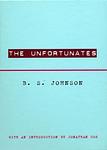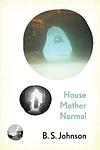B. S. Johnson
B. S. Johnson (Bryan Stanley Johnson) was an English experimental novelist, poet, literary critic, and filmmaker. He was born on February 5, 1933, in London, and died on November 13, 1973. Johnson was known for pushing the boundaries of the novel form with his avant-garde and formally innovative works. His best-known novels include 'The Unfortunates' (1969), which was famously published in a box with unbound chapters that could be read in any order, and 'Christie Malry's Own Double-Entry' (1973). His writing often reflected his preoccupations with the frustrations and complexities of modern life, and he was associated with the British literary movement of the 1960s. Despite his early death by suicide, Johnson's work has continued to influence contemporary writers and is celebrated for its originality and daring.
Books
This list of books are ONLY the books that have been ranked on the lists that are aggregated on this site. This is not a comprehensive list of all books by this author.
-
1. The Unfortunates
"The Unfortunates" is a unique and experimental novel that explores the fragmented nature of memory and grief through the eyes of a sportswriter who is sent to cover a football match in a city where he once had a close friend who died of cancer. The narrative is presented in a non-linear fashion, with the book consisting of 27 unbound sections (apart from the first and last chapter), allowing readers to experience the story in a random order, mirroring the protagonist's stream of consciousness and the unpredictable way memories resurface. The work delves into themes of loss, friendship, and the randomness of life, as the narrator's recollections and reflections on his past with his friend are interwoven with his observations of the present day.
-
2. House Mother Normal
"House Mother Normal" is a unique and experimental novel that provides a deep exploration of the lives of eight elderly individuals living in a nursing home. The book is written from the perspective of each character, including the house mother, with each narrative providing a detailed account of the same events from their individual viewpoints. The novel uses various innovative techniques to depict the mental and physical deterioration of the characters, offering a profound and empathetic insight into the world of the elderly and the often overlooked challenges they face.

